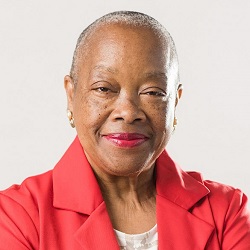Commentary on 1 Samuel 1:4-20
I hope some preachers will choose this text to preach, and then will read the Song of Hannah, called a prayer, in 1 Samuel 2:1-10 as an alternative to the psalm to accompany it. And I hope the preacher will begin at the beginning with verses 1-3, instead of after the pedigree, names, and the description of the problem before us as laid out in the opening verses.
The story purports to be about a well-heeled man from the high country of Ephraim, but introducing Elkanah is a ploy to introduce us to the real protagonist, Hannah. Hannah’s story is a familiar biblical one of a barren woman, longing for a child, and also a part of the ongoing saga of human desires. That is why I hope preachers won’t skip it.
I do not know personally the pain, angst, and sorrow of barrenness, the inability to have children. But I have known several women and a few couples whose grief over not being able to conceive left them speechless and feeling powerless. I remember a particular conversation where I, who seemed to get pregnant when my husband simply looked at me, felt irritated at the woman of sorrow talking with me. Why wasn’t she content with her life sans children? I wondered. She was a successful businesswoman with lots of friends; she had a loving husband who lavished her with gifts and praise. Why was the desire to have a child consuming her so?
Rereading this pericope, and some scholarship, I remembered my youthful hubris and insensitivity toward my friend’s pain. My irritation was Elkanah’s, “Am I not more to you than ten sons?” (verse 8). Many scholars read these words as proof of Elkanah’s deep love for Hannah. Afterall, he gives her a double portion “because he loved her, though the Lord had closed her womb” (verse 5).
But these words from Elkanah seem to be about him and his vision of the world, with no real understanding of his wife’s emotional and spiritual world. As Robert Alter notes, “The double-edged poignancy of these words is that they at once express Elkanah’s deep and solicitous love for Hannah and his inability to understand how inconsolable she feels about her affliction of barrenness.”1 His love, it would seem, is passionate in spite of her inability to produce an heir, the ultimate success of women in a patrilineal, patriarchal society as pre-monarchical ancient Israel was. Thus, the answer is “no,” he is not better to her than 10 sons, because her honor and security are tied to childbearing.
Should she become a widow, her station in her society would be precarious. As ancient social status worked, she would have no one to care for her, much like the situation Naomi and Ruth found themselves in. Naomi, you may remember, wanted to change her name to “bitterness,” in other words, Mara, because her situation was the reverse of Hannah’s condition. She went out “full,” and came back empty, without husband or sons (Ruth 1:20-21).
I find it interesting, and hope other preachers will too, that this is the story that leads into the nationhood of ancient Israel. It is not the birth of a king, but the desire of a child to be pledged to God as a prophet that the editors use to shape the nation-story of ancient Israel. When faced with a struggle with the Philistines, the people would clamor for a king “like the other nations” (1 Samuel 8).
This story sets up the challenge that prophets are always to contend for Israelite kings not to be like other nations, but like the king God desires for them as described Deuteronomy 17:14-20. Not yet born, the text is pointing to the child that Hannah bears as important in God’s work. Hannah’s prophetic song, after this story, also captures this idea that God will give strength to the king (a righteous king is assumed; 1 Samuel 2:10), even though there is no king when she begins to sing.
This opening to ancient Israel’s nation-state saga is also a familiar trope in the Hebrew Bible, where a barren woman and a fertile woman, married to the same man, are in conflict because of their childbearing status. Here the preacher might remember Leah and Rachel (Genesis 29) and Sarai and Hagar (Genesis 16 and 21), for example. And because she meets the societal expectation, Peninnah, “… used to provoke [Hannah] severely, to irritate her, because the Lord had closed her womb” (1:6).
Remember how I wrote earlier that I was irritated at my friend’s apparent ingratitude? Imagine Hannah being provoked, prodded, and poked for not being able to produce an heir? Imagine the soul irritation, the rub against the heart. Imagine the inability to have a comeback that would quiet the taunting. Peninnah had several children, and she used that against Hannah, as if she somehow was in charge of her own reproductive capabilities.
Of course, the imaginative preacher might see how we who consider ourselves blessed do the same toward people who are not blessed, according to our standards. We may not use words, but it is in our attitudes and societally, in our policies. Peninnah’s children are Hannah’s condemnation. She is shamed by her barrenness. Hannah wept and would not, perhaps could not eat, under all this duress from her co-wife.
In our day, I want us to acknowledge how often those of us who seem privileged (in whatever way privilege shows up) can be insensitive to those who need and desire social standing and safety. In this text, it is the social standing and security that having a child brings women. But an imaginative preacher might see other ways that we are callous about the social precarity of those around us, for example, those made poor by economic and political policies, racial disparities that keep people on the outside, and more.
There is nothing in the text that indicates that Hannah speaks back to either Peninnah or Elkanah. She instead presents herself unabashedly to God (verse 9). She holds her peace before her family, though she is bereft and, as she would say later to Eli, “a bleak-spirited woman,”2 what the NRSV translates as “deeply troubled” (verse 15). She directs her grief and lament in prayer to the God of heaven, the God of wombs and women.
Hannah makes a petition on her own behalf (verse 9). An astute preacher might make note of this agency in a setting where it may seem that she or others have no agency. It is the story of a woman who petitions on her own behalf and does what it takes, physically and ritually, to try to have a child.
As I type these words, I am deeply aware that there are women in our times that have prayed, have spent thousands of dollars on in vitro fertilization, and other methods in an effort to have a child, but still have not had one. A sensitive preacher will recognize the grief that palpitates while preaching this promise of a child from God. That lament should be woven in the telling of this “good news” story. That grief should be honored and not downplayed in an effort to “skip to the good part.”
After Hannah has ritually offered a sacrifice, and promised to lend her child to God, she returns full and eats for the first time. Some might pay attention to the fact that it is still a patriarchal desire to which she has yielded. But we have to be careful not to impose too much of our own understanding of the way the world works onto Hannah. We should save our critique for ourselves.
At this point, the preacher might look at the futuristic song of praise and prophetic intent that Hannah sings when she finds herself a recipient of God’s answer to her petition. The song is one of reversal where the barren gives birth to seven and the one with many children is forlorn (2 Samuel 2:5). These reversals continue through to verse 10, the rich are brought low, the poor are exalted, and so it goes. We would have to confess that these words are of hope and the future, since we live in a world where the 1% is obscenely wealthy and people made poor struggle to survive throughout the world. The song calls the Holy One to God’s own self and promises and strengthens those who trust in God to indeed serve as a righteous judge to the ends of the earth (verse 10).
Notes
- Robert Alter, The Hebrew Bible: A Translation with Commentary. Volume 2: Prophets. (New York: W. W. Norton & Company, 2019), p. 178.
- Alter’s Translation and commentary on verse 15, uses “bleak-spirited, but notes in his commentary of the same verse that the word appears in the Hebrew bible only here and might more accurately be translated “hard-spirited.” Volume 2: The Prophets, p. 179.


November 14, 2021